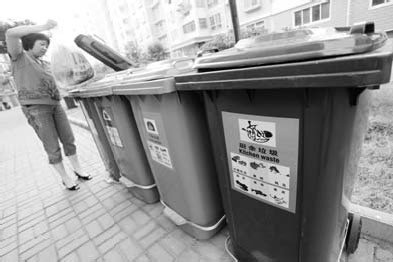Society
Sorting out a better system for garbage
By Jin Zhu (China Daily)
Updated: 2011-04-27 08:24
 |
Large Medium Small |
Beijing - Chinese city dwellers will soon have to pay more for garbage collection and treatment in a series of measures dealing with the increasing garbage produced amid fast urbanization, said a government statement on Monday.
 |
|
Four bins marked for different kinds of garbage stand in a residential community in Xuchang, Henan province. File photo by Niu Shupei / for China Daily |
The increasing amount of garbage has become too large to adequately treat, polluting urban environments and undermining social stability in recent years, according to the statement from the State Council, China's Cabinet.
By 2015, China should have technology needed to ensure that 80 percent of the garbage collected from city households can be treated as nonhazardous waste, and that figure will rise to 100 percent by 2030, according to the statement.
Local governments will set the prices they charge for the treatment of urban garbage by taking into account local average incomes and economic circumstances.
At present, both citizens and businesses spend very little on garbage treatment, according to Xie Xinyuan with the research and investigation department of Friends of Nature, a non-governmental environmental protection organization.
"For instance, in Beijing, every household just pays 3 yuan (46 cents) a month, which is not enough to support the whole process of garbage separation and treatment," he said.
| ||||
By the end of August, local governments are to report the plans they have made to charge fees, the statement said.
The country will also work to reduce the production of household garbage by encouraging the use of gas and solar energy, and of vegetable baskets and cloth bags for carrying groceries. It will ask the public to separate garbage into categories, making it easier to recycle.
And it will discourage the use of disposable items and excessive amounts of packaging.
More efforts will be made to add to the current number of treatment plants and tighten the monitoring of the construction and operation of such plants. These steps are being taken in response to the public's increasing concern over health and environmental issues in recent years.
Also as part of those changes, pollutants discharged from plants that treat household garbage will be tested every three months and discharged dioxins will be tested at least once a year. Those results must be released to the public, the statement said.
The amount of garbage thrown away in China is expected to increase from 190 million tons in 2004 to 480 million tons in 2030, according to a World Bank report released in 2005.
By September 2010, China had been able to treat nearly 400,000 tons of garbage a day at the 849 treatment operations then in existence.
The operations were composed of 676 landfills, seven composting plants, 90 incineration plants and 76 integrated treatment plants, according to the latest statistics from the Ministry of Housing and Urban-Rural Development.
"More operations used to separate garbage have been set up in residential areas, especially in large cities," Xie said. "But many people do not know how to use them or even do not know how to separate their garbage correctly."
"Local governments need to give more training and guidance to residents in the future."
| 分享按鈕 |



